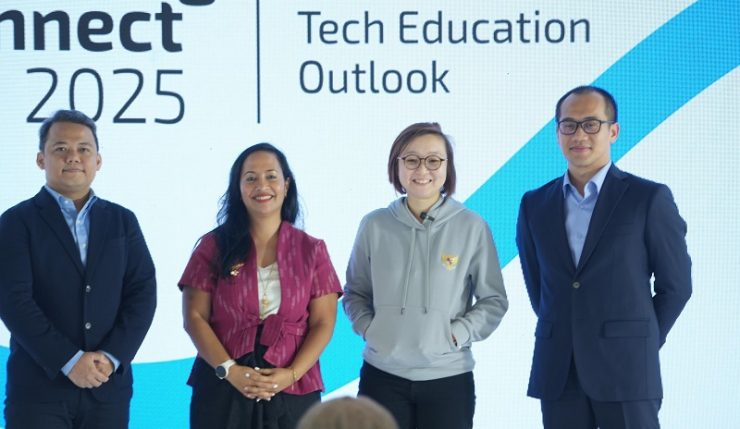DEPUTY Minister of Creative Economy Irene Umar attended the Dicoding Connect 2025 event at Plataran Senayan, Jakarta. This event was organized by Dicoding Indonesia to bring together developers, mentors and technology industry players in an interactive forum.
Through this event, participants can discuss, share experiences, and network with fellow professionals in the technology field. Dicoding Connect features talks, workshops, and networking sessions that aim to broaden horizons and create opportunities for collaboration in the digital industry.
Irene emphasized the importance of mastering a foreign language, especially in the digital world. According to her, limitations in speaking English are still a challenge for many Indonesians.
“We need to learn to speak in order to move Indonesia forward. We need to be relevant to the outside world so that Indonesia is not just seen as a market, but can become a creator,” said Irene.
Furthermore, Irene revealed the Ministry of Creative Economy’s program to promote the digital world, one of which is the “Emak-Emak Matic” (Technology Literate Mothers) program. This program aims to reach all levels of society, especially housewives and those who do not have access to higher education. Since its launch last year, the program has been implemented in six cities and aims to reach 40 cities by 2025.
“This program aims to reach out to people who cannot afford to continue their education at the university level and to empower mothers at home. With the power of mothers, this program will continue to develop and reach more cities in 2025,” she added.
In addition, Irene also highlighted the presence of the “Global Game Jam” last January, where developers managed to create a game prototype in 48 hours that was activated in 12 cities in Indonesia. The results of this prototype will later be developed and adapted as games in public spaces in each game corner.
Meanwhile, Dicoding CEO, Narenda Wicaksono revealed that there are two main challenges in the digital industry in Indonesia. First, as a large country, Indonesia’s economic potential is spread across different islands, so it needs more digital talent in different regions. Second, the contribution of artificial intelligence (AI) to Indonesia’s gross domestic product (GDP) is still below that of developed countries.
“The two main challenges we raise are the vast area of Indonesia, which requires digital talent in various regions, and the contribution of AI to GDP, which is still low compared to developed countries. We must strive to improve this so that Indonesia can compete globally,” Narenda remarked.
She also explained that the contribution of the information technology (IT) sector to Indonesia’s GDP is currently at 4.34%, based on data from the Central Statistics Agency (BPS) in 2024. In comparison, in developed countries such as the United States and China, this figure is in the range of 8-10%.
“We need to increase digitalization, both in terms of the number and quality of digital talent. Dicoding will continue to work with various ministries, including the Ministry of Creative Economy, to accelerate the growth of the digital industry in Indonesia,” Narenda concluded. [traveltext.id]
















